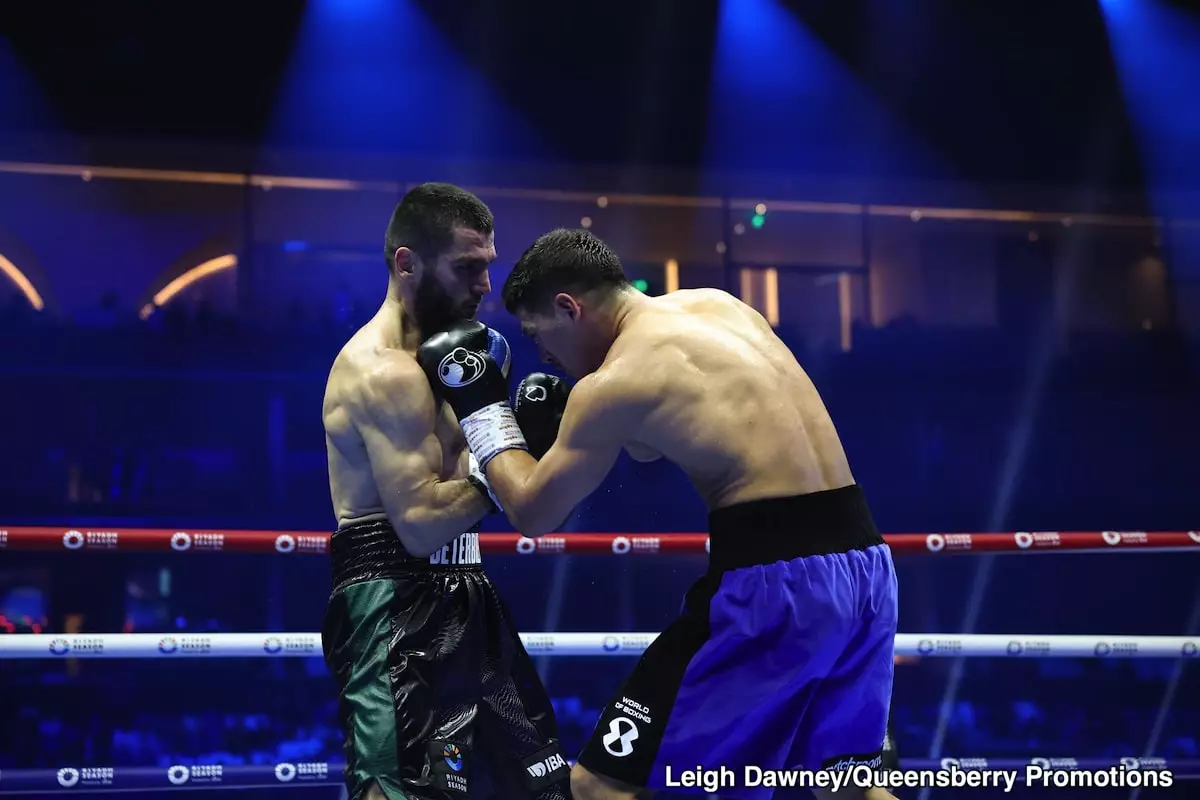The boxing world is often rife with opinion, particularly when it comes to controversial decisions by judges. The light heavyweight bout between Artur Beterbiev and Dmitry Bivol is the latest to fuel passionate debate, culminating in varying reactions from fighters, commentators, and fans alike. Tim Bradley, a respected commentator, recently revisited the match and offered insights that support the ruling favoring Beterbiev by a majority decision. His perspective prompts a deeper analysis of the fight’s dynamics and the broader implications for understanding scoring in boxing.
Beterbiev entered the ring boasting an impressive record—21 wins, 20 by knockout—while Bivol attempted to demonstrate his own skills against a formidable opponent. As the rounds progressed, it became apparent that Bivol employed a hit-and-don’t-get-hit strategy, which is often lauded for its defensive nuances. However, Bradley notes a critical flaw in Bivol’s performance; in his effort to avoid damage, he neglected to engage effectively. This outcome raises an essential question for boxers: Can defense alone secure a victory if it comes at the expense of scoring points?
The bout’s second half provides key insights into this dilemma. Bivol’s hesitance to trade punches allowed Beterbiev to establish himself as the aggressor. The art of boxing is not merely about evasion; it is equally about offense. The judges recognize the importance of an active fighter who seeks to control a fight’s tempo. In this case, although the number of punches landed by both fighters was similar, the impact and aggression of Beterbiev’s strikes influenced the judges’ scoring decisions.
Judges are tasked with evaluating a fighter’s effectiveness, which can often be subjective. Bradley pointed out that judges take note of a fighter’s demeanor and how they respond to their opponent’s punches. For example, he emphasized that when a fighter is on the defensive, running, or not throwing punches, it unintentionally conveys an impression of being hurt or overwhelmed. This is a crucial factor in scoring that Bivol seemingly overlooked during the latter portion of the fight.
As Bivol retreated in the sixth round after sustaining heavy shots from Beterbiev, his lack of offensive output became evident. This strategic miscalculation might have cost him vital points in the judges’ eyes. A bruised eye and visible signs of damage on Bivol only served to further reinforce the narrative that he was not in control of the fight. In discussing this, Bradley deftly highlighted the importance of delivering offense even when adopting a defensive posture. A passive approach ultimately signals weakness, potentially affecting how judges score close rounds.
In the aftermath of the fight, numerous voices chimed in, with some labeling the decision a robbery—an assertion that Bradley vehemently disputes. This term—“highway robbery” in boxing parlance—is often employed when one believes that a fighter has been unfairly denied a victory. However, as pointed out by both Bradley and Chris Algieri, the fight exhibited nuanced competition, rendering such claims misaligned with the reality of what transpired in the ring.
Controversial decisions are not new in boxing, but they expose the sport’s duality: the blend of artistry and brutality. A fighter’s success isn’t solely measured by skill but by the perception formed through that skill’s execution within the ring’s confines. Bradley’s insistence that the R-word should not apply to this match highlights an essential aspect of boxing—each fight should be judged in context.
Analyzing the Beterbiev vs. Bivol fight requires a nuanced understanding of boxing’s scoring criteria. It’s a reminder that in the high-stakes world of boxing, defense alone cannot secure victory; offensive action and strategic engagement are equally paramount. The diverse reactions from fans, promoters, and analysts illustrate the complexities of boxing, encouraging deeper consideration than simply viewing outcomes through the lens of favoritism or bias.

